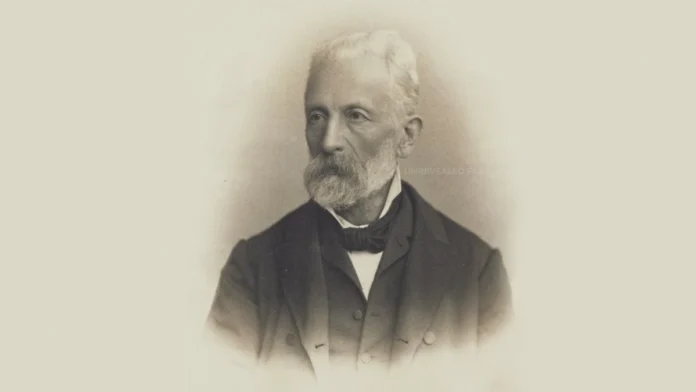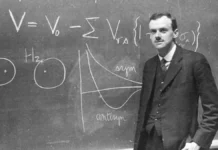Adolf Bastian stands as a great figure in the field of anthropology and ethnology. His profound contributions have left an indelible mark on the understanding of human cultures and societies. Born in 1826 in Bremen, Germany, Bastian’s journey unfolded against a rapidly changing world, marked by colonial expansions, scientific advancements, and cultural exchanges. His relentless pursuit of knowledge and his unwavering commitment to uncover the intricacies of human civilization propelled him into the chapters of history as one of the pioneering figures in the field of ethnography. In this article, we will learn about the life, works, and enduring legacy of Adolf Bastian.
Contents
Adolf Bastian’s Early Years was a Foundation of Curiosity
Born into a rich German bourgeois family of merchants, Bastian grew up in Bremen, which was then a part of the German Confederation. Adolf Bastian’s early years were characterized by a profound sense of curiosity and an insatiable thirst for knowledge. Raised in a stimulating intellectual environment, he demonstrated a keen interest in natural sciences, languages, and cultures from a young age. Bastian’s upbringing instilled in him a deep appreciation for diversity and a genuine desire to comprehend the complexities of the human experience.
Bastian’s academic journey
Bastian’s academic journey commenced with studies in medicine and philosophy at the University of Berlin, where he immersed himself in the rich tapestry of academic discourse prevalent in 19th-century Germany. It was during this period that Bastian’s fascination with ethnology began to crystallize, spurred by encounters with the works of luminaries such as Johann Gottfried Herder and Alexander von Humboldt. Drawing inspiration from their seminal contributions, Bastian embarked on a quest to unravel the underlying threads connecting human cultures across time and space.
Bastian’s Voyages of Discovery
Central to Bastian’s scholarly endeavors were his extensive travels across the globe. Venturing beyond the confines of Europe, he embarked on expeditions to far-flung regions, including Africa, Asia, and the Americas. These voyages provided Bastian with firsthand encounters with diverse cultures and peoples, fueling his empirical observations and theoretical reflections. Immersed in the kaleidoscope of human existence, he sought to document and analyze the myriad expressions of human creativity, belief systems, and social organization.
The Concept of Elementargedanke
Because of his notion of the Elementargedanke, which paved the way for Carl Jung to establish the theory of archetypes, modern psychology owes him a huge duty. Both Joseph Campbell, a comparative mythologist, and Franz Boas, the “father of American anthropology,” were profoundly influenced by his theories.
At the heart of Bastian’s theoretical framework lies the concept of Elementargedanke, or the “elementary idea.” This concept posits that underlying the diversity of human cultures are fundamental elements of thought and expression that transcend geographical and temporal boundaries. Bastian argued that these elemental ideas serve as the building blocks of culture, manifesting themselves in myths, symbols, rituals, and customs across disparate societies. By identifying and analyzing these common threads, Bastian sought to illuminate the universal aspects of human cognition and behavior, fostering a deeper understanding of human cultural evolution.
Challenges to Bastian’s Legacy
While Bastian’s contributions to ethnology were substantial, they were not immune to criticism and controversy. His conceptualization of Elementargedanke faced scrutiny from contemporaries and subsequent generations of scholars who questioned the universality and applicability of his theories. Critics argued that Bastian’s emphasis on elemental ideas overlooked cultural phenomena’ dynamic and contingent nature, neglecting the nuances of historical context and social dynamics. Moreover, his Eurocentric perspective and colonial mindset have been subject to critical interrogation in light of contemporary discourses on decolonization and cultural relativism.
Legacy and Influence
Despite the complexities and critiques surrounding his work, Adolf Bastian’s legacy endures as a foundational pillar of anthropological inquiry. His emphasis on empirical observation, comparative analysis, and cross-cultural understanding laid the groundwork for subsequent generations of ethnographers and anthropologists. Bastian’s insights continue to inform contemporary debates on cultural diversity, globalization, and human cognition, resonating across disciplinary boundaries and transcending temporal constraints.
Conclusion
In retracing the trajectory of Adolf Bastian’s intellectual odyssey, we encounter a figure whose legacy transcends the confines of his time and place. His relentless pursuit of knowledge, coupled with a profound respect for cultural diversity, exemplifies the enduring spirit of inquiry that animates the field of anthropology. While his theories and methodologies may have evolved, Bastian’s commitment to unraveling the mysteries of human culture remains a testament to the enduring power of curiosity and scholarship. As we navigate the complexities of the human experience, we are reminded of the indelible imprint left by Adolf Bastian—a trailblazer whose insights continue to illuminate the contours of our shared humanity.
Sources
- Campbell, Joseph (1960), The Masks of God: Primitive Mythology, London: Secker & Warburg, p. 32.
- Baldus, Herbert. “Adolf Bastian.” Revista de antropologia (1966): 125-130.
- Köpping, Klaus Peter. Adolf Bastian and the psychic unity of mankind: The foundations of anthropology in nineteenth century Germany. LIT Verlag Münster, 1983.
- Tylor, Edward B. “76. Professor Adolf Bastian: Born June 26, 1826; Died February 3, 1905.” (1905): 138-143.
FACT CHECK: We strive for accuracy and fairness. But if you see something that doesn’t look right, please Contact us.
DISCLOSURE: This Article may contain affiliate links and Sponsored ads, to know more please read our Privacy Policy.
Stay Updated: Follow our WhatsApp Channel and Telegram Channel.














